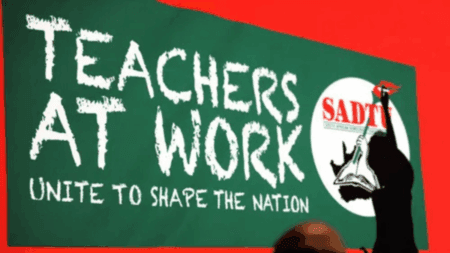Applying for government jobs in South Africa offers a unique opportunity for individuals seeking stable and fulfilling careers in public service. However, the competitive nature of these positions means that even minor missteps can hinder your chances of success.
Read more: How to Write a Cover Letter to Accompany Your CV
Common Mistakes to Avoid When Applying for Government Jobs
1. Ignoring Eligibility Requirements
One of the most critical aspects of any job application is ensuring you meet the eligibility requirements. Each government position has specific qualifications, including educational background, work experience, and specific skills. Failing to review these requirements can lead to disqualification.
Practical Tip: Before applying, read the job advertisement carefully. Make a checklist of the required qualifications and compare them with your own credentials to ensure alignment. If you do not meet the minimum requirements, consider seeking roles that better match your qualifications.
2. Using a Generic CV and Cover Letter
A common mistake among applicants is submitting a generic CV and cover letter for multiple applications. This approach fails to showcase your relevant skills and experiences, making it difficult for hiring managers to see why you would be a good fit for the specific role.
Practical Tip: Tailor your CV and cover letter for each position you apply for. Highlight specific experiences that align with the job description and use keywords from the posting. This demonstrates your genuine interest in the role and shows that you’ve done your homework.
3. Neglecting Online Application Portals
Most government jobs require applications to be submitted through official online portals. Some candidates overlook the nuances of these platforms, leading to improperly submitted applications or missed deadlines.
Practical Tip: Familiarize yourself with the specific online application process for each position. Create an account on the portal well in advance, and ensure you understand how to upload documents and complete all necessary fields. Consider keeping a checklist of each step to streamline the process.
4. Incomplete Applications
Submitting an incomplete application can significantly reduce your chances of being considered for a position. Many government job listings require specific documents, such as academic certificates, identification, and references.
Practical Tip: Before submitting, thoroughly review the application requirements to ensure all necessary documents are included. Keep a folder with copies of all relevant materials, so you can quickly reference and attach them when applying.
5. Poor Presentation
First impressions matter, and your application materials are often the first point of contact with potential employers. Submitting documents filled with typos, grammatical errors, or inconsistent formatting can convey a lack of attention to detail.
Practical Tip: Invest time in proofreading your CV and cover letter. Consider using tools like grammar checkers, and ask a trusted friend or mentor to review your documents. Clear, professional formatting is essential; use consistent fonts and layouts to create a polished presentation.
6. Underestimating the Importance of References
References can play a pivotal role in the hiring process. Many applicants neglect to provide strong or relevant references, which can impact their application negatively.
Practical Tip: Select references who can speak positively about your skills, work ethic, and character. Inform them in advance that you are applying for government positions and provide them with details about the roles so they can tailor their responses accordingly.
7. Lack of Research on the Department
A lack of understanding about the department or agency you’re applying to can weaken your application. Many candidates fail to research the organization’s goals, values, and recent initiatives.
Practical Tip: Take the time to research the department thoroughly. Understand its mission, current projects, and challenges it faces. This knowledge will not only help you tailor your application but also prepare you for interviews, where demonstrating familiarity with the organization is crucial.
8. Failing to Prepare for Interviews
Preparation is key when it comes to interviews, yet many candidates enter without sufficient readiness. This can lead to missed opportunities to showcase their suitability for the role.
Practical Tip: Practice common interview questions and prepare your responses. Additionally, have a set of thoughtful questions to ask the interviewers. This shows your interest in the position and gives you insights into the role and organization.
9. Missing Deadlines
Government job applications often have strict deadlines, and missing these can disqualify you from consideration.
Practical Tip: Create a calendar with all application deadlines and set reminders. Plan your application timeline to allow for ample time to gather documents, tailor your CV, and prepare for interviews.
10. Not Following Up
After submitting your application or attending an interview, failing to follow up can be a missed opportunity to reinforce your interest in the position.
Practical Tip: Send a thank-you email after an interview, expressing gratitude for the opportunity and reiterating your interest in the role. If you haven’t heard back after a reasonable period, consider reaching out to inquire about the status of your application.
Recommended for you: Preparing for Government Job Interviews in 2024: Essential Tips
Applying for government jobs in South Africa can be a fulfilling endeavor, but it requires attention to detail and strategic preparation. By avoiding these common mistakes and implementing the practical tips outlined above, you can enhance your chances of securing a position in public service. Remember, each application is an opportunity to showcase your skills and commitment to contributing positively to society.
With the right approach, you can navigate the application process successfully and embark on a rewarding career in government. Good luck!






